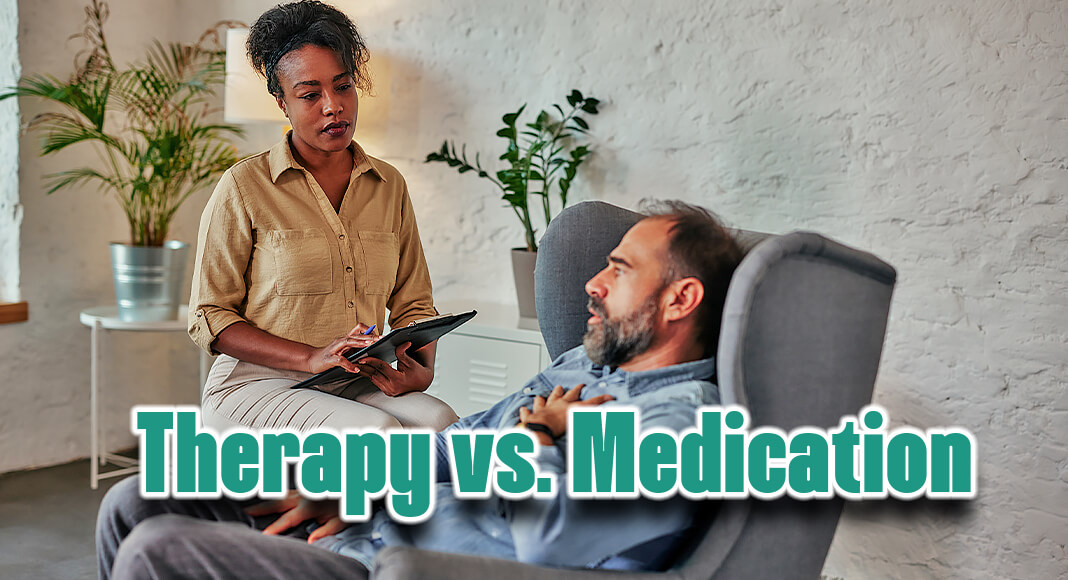
Mega Doctor News
By Ceders Sinai
Newswise — LOS ANGELES — New research by investigators from the Department of Psychiatry and Behavioral Neurosciences at Cedars-Sinai shows that behavioral activation therapy is as effective as antidepressant medications in treating symptoms of depression in patients with heart failure.
Heart failure affects nearly 6 million adults in the United States, and approximately 50% of heart failure patients experience symptoms of depression along with their condition. Past studies show patients with heart failure and depression have lower cardiac function, more emergency department visits and hospital admissions, higher caregiver burden, and poorer quality of life compared with patients with heart failure who are not depressed.
“The most important finding here is that patients experiencing depression have a choice in terms of their treatment between therapy or medications,” said Waguih W. IsHak, MD, vice chair of Education and Research in the Department of Psychiatry and Behavioral Neurosciences at Cedars-Sinai and first author of the study. “Patients who prefer not to be on medication can do behavioral activation therapy with similar results.”
The study, which was published in the peer-reviewed journal JAMA Network Open, followed more than 400 patients over the course of a year. Half of the study participants received antidepressant medication management to treat depression symptoms while the other half participated in behavioral activation psychotherapy, an evidence-based treatment for depression that promotes engagement in activities a patient finds enjoyable.
The research was done in close collaboration with the Smidt Heart Institute at Cedars-Sinai, and its heart failure program led by Michele Hamilton, MD, vice chair of the Department of Cardiology in the Smidt Heart Institute and co-author of the study.
Investigators say there was no statistically significant difference between the effectiveness of the two methods, with each patient group experiencing a more than 50% reduction in the severity of depressive symptoms.
Study participants randomized to receive behavioral activation therapy worked with a therapist to develop a personalized list of activities that bring them joy and fulfillment, including having lunch with a friend, taking a walk, volunteering, listening to their favorite music—among other options—on a regularly scheduled basis. The treatment focused on increasing the level of enjoyable and rewarding activities the patient was doing every week for 12 weeks, and then incorporating them into their regular activity schedule.
Patients who received psychotherapy intervention showed a slight improvement in their physical and mental health-related quality of life, a secondary outcome monitored by the study. They also had fewer emergency department visits and spent fewer days hospitalized during the course of the study compared with the patients who were randomized to receive antidepressant medications.
“This study, which was conducted in a real-world setting, demonstrates that it is entirely feasible to incorporate psychiatric treatment into specialty medical care. Integrating psychiatric treatment into medical care is an effective way to reduce stigma, increase access and improve outcomes for people who struggle with mental health problems alongside their chronic medical conditions,” said Itai Danovitch, MD, MBA, chair of the Department of Psychiatry and Behavioral Neurosciences and a study co-author. “Most people who suffer from depression do not receive effective treatment. It is critical that we increase screening for psychiatric conditions and ensure that patients have access to high-quality and effective mental health care.”
Other Cedars-Sinai authors involved in the study are Michele A. Hamilton, MD; Samuel Korouri, BA; Marcio A. Diniz, PhD; James Mirocha, MS; Rebecca Hedrick, MD; Robert Chernoff, PhD; Jeanne T. Black, PhD; Harriet Aronow, PhD; Brigitte Vanle, MD, PhD; Jonathan Dang, MD; Gabriel Edwards, MD; Tarneem Darwish, MD; Gabrielle Messineo, LCSW; Stacy Collier, RN; Mia Pasini, RN; John G. Harold, MD; and Brennan Spiegel, MD, MSHS. Additional authors include Kaleab K. Tessema, MD, PhD; Michael K. Ong, MD; and Kenneth Wells, MD.
Funding: The study by was funded by the Patient-Centered Outcome Research Institute (PCORI) (award No.: 2017C2-7716; paid to Cedars-Sinai Medical Center).
Read more from the Cedars-Sinai Blog: Living With Heart Failure









